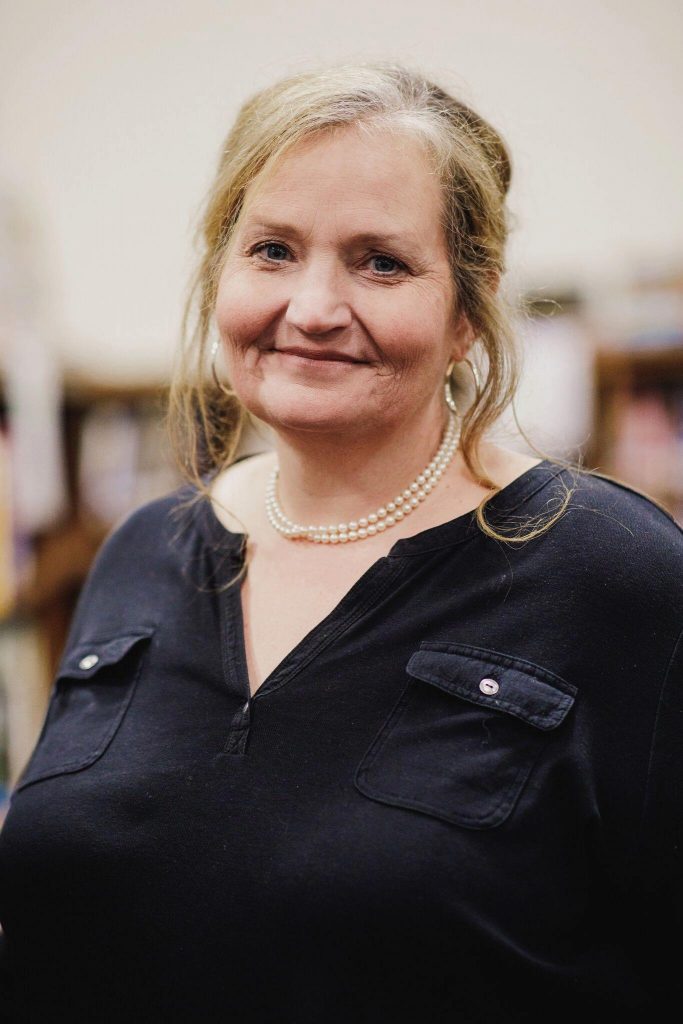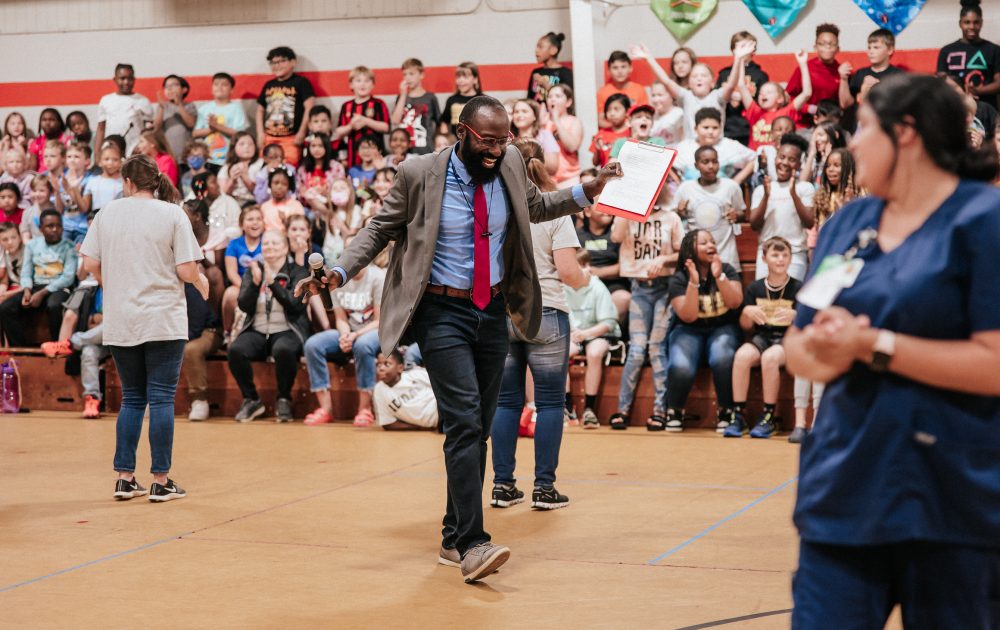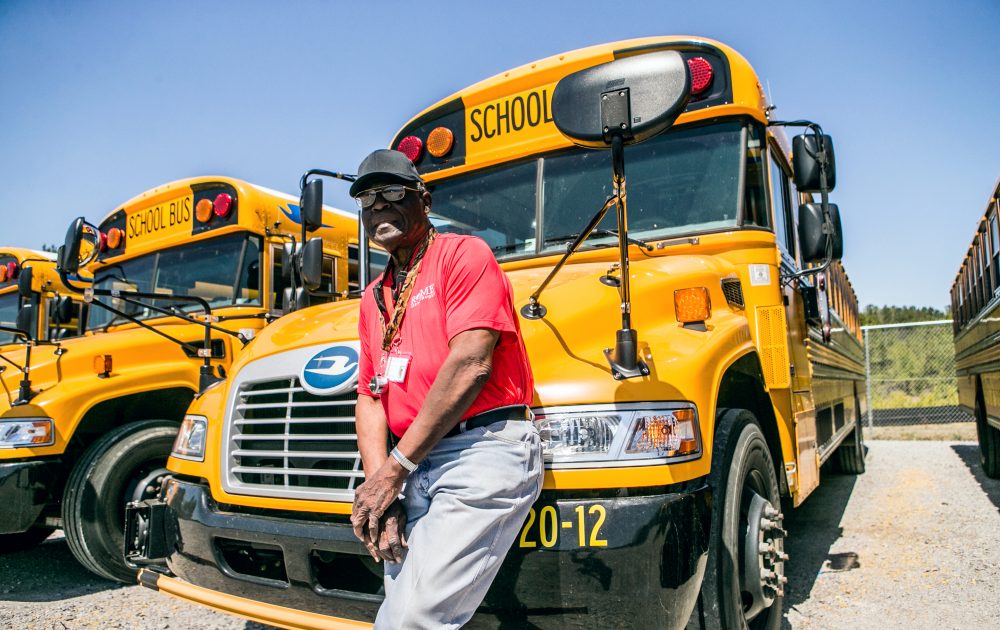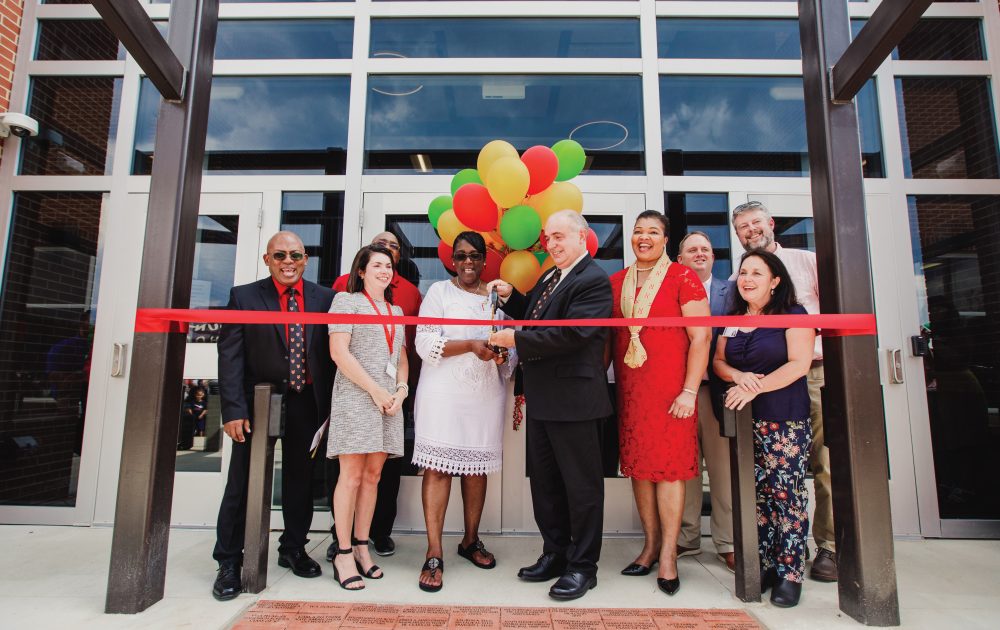
Photo by Rome City Schools
Education and the ability to learn is at the forefront of each educator’s minds, and it is especially true for Rome City Schools teachers and administrators. Each student, no matter their struggles, deserves to receive the success afforded to them by way of a firm educational foundation.
Dawn Wright, teacher for the visually impaired at Rome City Schools, agrees with this statement wholeheartedly, and dedicates her life’s work to making sure each student gets the most out of their time in the classroom.
As the only teacher for the visually impaired in the Rome City School’s system, Wright quickly noticed that her students needed a bigger variety of instruction that wasn’t necessarily located in their standards.
“I focus on teaching outside of the box because there is not a lot of resources for vision teachers,” said Wright. “For example, when I have a problem, there isn’t anyone to go to for help because I am the only visual impairment teacher here.
“We kind of get stuck with curriculums—if you try and stick to those curriculums, there is always going to be someone who doesn’t respond, which is why I decided to do something about it,” said Wright.
While completing her master’s in Special Education and Visual Impairments at the University of South Carolina, Wright was encouraged by her professor to take her ideas and present them at the upcoming IDEAS (The Institute Designed for Educating All Students) Conference on Visual Impairments.
“During my very first year, I had a student who wasn’t making any progress, wasn’t learning braille, etc. I was still in school at this point, so for my final project my professor suggested using my student as a catapult to find another way. So, I took an adapted curriculum and adapted it again, and we saw so much growth in him in just four months. It was incredible,” she smiled.
The IDEAS Conference on Visual Impairments is a state-wide conference that is designed to support educators who work with students with disabilities.
This year, the conference was held at Epworth by the Sea in St. Simon’s Island, Georgia from June 3-7.
Wright’s proposal consisted of two case studies. “My first case study was based on one of my students who is blind—the one who struggled learning braille. And the second one was based on one of my female students who has cortical impairments. We couldn’t get through to her in any area, which was when we decided she needed more sensory input,” explained Wright.
While presenting her proposal at the IDEAS Conference, Wright was also invited to participate in the Assistive Technology Leadership Academy.
The leadership academy is available by invitation only and is closed to all other attendees. The group of leaders were from districts across the state of Georgia and the Georgia Vocational Rehabilitation Agency (GVRA). The group focused on Assistive Technology and positive post-secondary outcomes for students.
Presenting her ideas at this conference is a huge step in the right direction for the visually impaired, teachers of the visually impaired and Rome City Schools.
“As of now, I do not use a set curriculum anymore (unless it works for that particular student). Before I traveled to the conference, there were still a lot of teachers who did use the provided curriculum. They wanted to stick to the tried and the true—and are sometimes very quick to say, ‘Oh they’re just going to be a non-reader.’ But I don’t think that’s the case,” said Wright. “I think every student, no matter their impairments, can read. Therefore, I decided to write this proposal. I wanted to give these students and other teachers the support to say, ‘I can do this.’”
According to Wright, her students are incredible and deserve all of the credit for the advancements made in education for the visually impaired.
“My students are underestimated a lot. People just don’t realize how my students may not can learn in the same way everyone else does. But they are so capable,” she smiled. “My whole idea is to help them to understand that even though they learn in a different way, they can still learn and do anything anyone else can do.”



